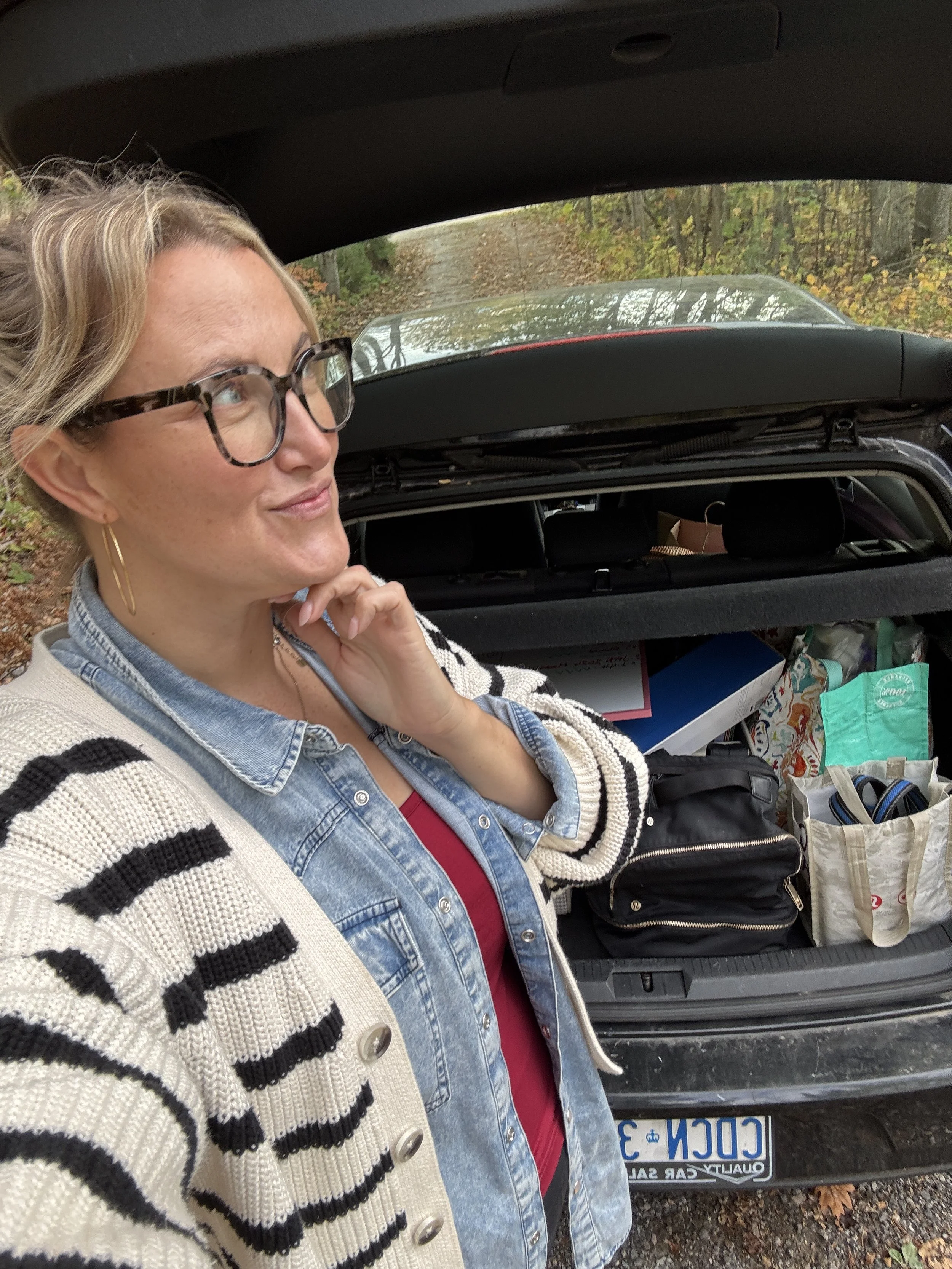From Victim to Empowered: The Life-Changing Decision to Stop Complaining
The Promise I Made to Myself
I’ve made a promise—a challenge—to stop complaining. BIG, right?
I really want to hold myself accountable because I can see how complaining keeps me stuck in victim mode. And while my hardships are valid, I’ve noticed how my complaints are shaping the way I experience my life.
Honestly, I’m just tired—tired of my own whining, my excuses, and of letting the negative pull me down.
This doesn’t mean I can’t have difficult feelings or that I’m trying to force a smile through toxic positivity. What it does mean is that when challenges arise, I’m going to take care of my emotions, find gratitude, and trust that God is orchestrating something bigger for me. I want to remember that I am capable, competent, and creative enough to find my next step.
Typing that felt so good. This is a powerful position to take.
Choosing Empowerment Over Victimhood
Making this commitment to stop external blame, negativity, and complaining shifts us into a more empowered, optimistic perspective. If we have a choice between being a victim or being empowered and resilient—which one would you choose?
A Real-Time Test
As I was typing this—no joke—the mechanic called to say my car might need a new engine.
Talk about an opportunity to practice what I preach.
Here’s the situation: my car and my dog have cost me just over $1,500 in less than a week. Between maintenance, emergency vet visits, and repairs, it’s been a lot—financially, emotionally, and mentally. I hate seeing my dog suffer, and I rely on my car to stay connected to my community over an hour away.
It would be so easy (and justified) to spiral into “I can never get ahead financially” or “why is this happening to me?” But honestly? I’m bored of that narrative. It doesn’t help—it just makes life heavier.
It’s happening because I bought a dog and a car and these things are normal.
So, I’m done. No more “woe is me.”
Flipping the Narrative
Do you know how grateful I am to even have a dog? A car? (Okay, maybe not for long—but still.)
These are signs of abundance. I get to be responsible for things that make my life better. I’m grateful that mechanics and veterinarians exist to help me, and that I can pay for these services without going into debt.
That’s wealth. That’s privilege. That’s gratitude.
And just to be clear—
this isn’t emotional bypassing.
Why Feelings Still Matter
I can allow my anger to rise when my car comes back with new problems. I can trust my gut when something feels off. My emotions are signals designed to help me, not control me.
When I feel angry, I don’t need to lash out or suppress it—I can channel it. So instead of cursing out the mechanic, I calmly voiced my concerns and asked for a solution. That got me a free assessment (and a call today saying I need a new engine).
Now, I’m bringing my car home for a second opinion.
If I hadn’t honored my anger, I might have ignored my instincts—or overreacted and burned a bridge. Either way, I’d lose. But by staying centered, I turned frustration into empowerment.
Stress and the Illusion of Control
Stress often comes from believing we have to handle everything alone.
That we should “just figure it out.”
But that belief—that bad things keep happening to you—is exactly what creates the spiral.
When you feel powerless, you cling to control. When control fails, you complain.
And round and round it goes.
The Trap of Absolute Statements
Absolute statements are sneaky. They sound like truth but overgeneralize your experiences into permanent reality.
Examples:
“This always happens to me.”
“No one cares.”
“Everyone’s happier than me.”
“Nothing good ever happens to me.”
“God never has my back.”
These words—“always,” “never,” “everyone,” “no one”—shut down hope. They make you blind to the ways people (and God) are showing up for you.
Sure, you might have real experiences of loss, betrayal, or repeated disappointment. That’s real. You don’t have to deny that.
But before turning those moments into your story, ask yourself:
👉 “What’s my role in this dynamic?”
👉 “What can I reasonably expect from this person based on past experiences?”
These questions don’t excuse other people’s behavior—they empower you. They release the need for others to change and put you back in control of what you can do differently.
Maybe that looks like speaking up for yourself. Or maybe it means letting go and trusting that new, aligned people will appear.
The Bottom Line:
Complaining Takes Away Your Power
When you tell yourself you’re powerless, you start to live like it. You get stuck.
You start complaining because deep down, you know you’re not taking the steps toward the life you want.
And that’s something worth complaining about, isn’t it?
It’s a cycle—but you can step out of it.
Final Thoughts
Let me know what you think of this reflection.
Our stress levels rise when we believe we’re carrying life alone—but we don’t have to.
These are my honest and raw thoughts.
I hope they help.
Katie
P.S. A Gentle Reminder
If this feels like more than a mindset shift—if it feels like something deeper has a grip on you—consider working 1:1 with me or another professional. Together, we can help you uncover what’s really going on and support you in transforming it safely.
You can fill out the form in my Work With Me section to see if I’m the right person to support you. 💛



